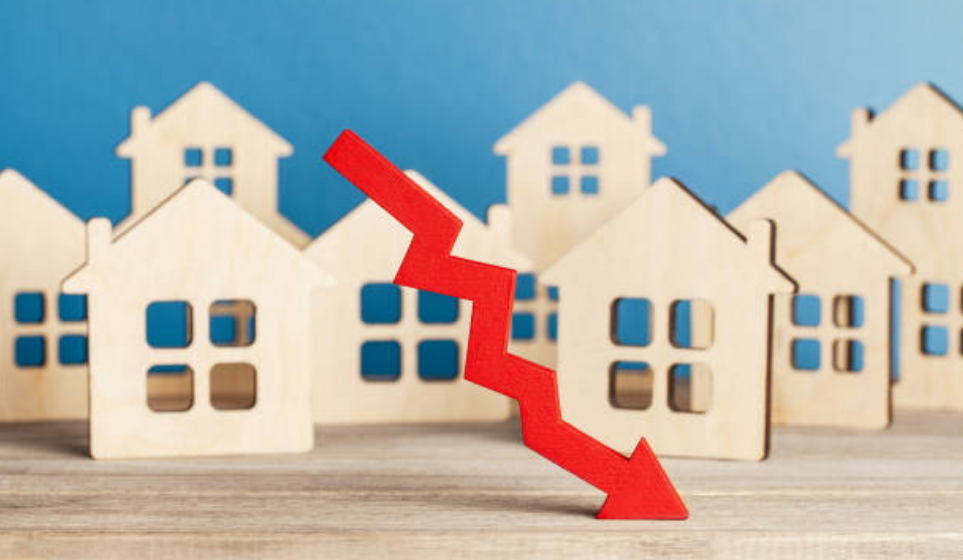
How Does Recession Affect the Real Estate Market? Investors frequently turn to real estate as a means of safeguarding their investment portfolios against the economic challenges posed by recessions. But, it's crucial to learn the repercussions of a recession on real estate markets. To gain deeper insights into this phenomenon, let's delve into the historical responses of these markets during such economic downturns. This blog aims to analyze previous recessions and their influence on the real estate sector. It will also offer investment strategies tailored to such circumstances.
But if you are looking for the best and safest investment during a recession, it is commercial real estate structured debt. How so? The consistent cash flow stream from fixed-interest payments serves as a cornerstone of debt investments. Borrowers continue their monthly payments irrespective of market fluctuations. This will help maintain the value of these investments.
A recession denotes an economic downturn. It gets characterized by diminished investments and overall economic activity. All these can potentially influence real estate valuations.
But, what happens to real estate during a recession? Or what is the recession impact on real estate?
Drop in Housing Prices: “Do real estate prices drop during a recession?” is a commonly asked question. Well, yes! Traditionally, real estate has been regarded as a relatively steadfast investment avenue amid economic contractions. Nevertheless, this resilience might not be consistent throughout every recession. Past instances have seen substantial drops in housing prices attributable to decreased demand and waning investor confidence.

The period of the Great Recession (2007–2009) witnessed an unprecedented plummet in home prices. It marked one of the most substantial declines in contemporary history. This substantial reduction caught numerous investors off guard, and the US housing market took several years to recuperate. Over that duration, housing prices encountered a nearly 20% drop. It led to a swift erosion of home equity values and a notable upsurge in foreclosures.
Similarly, the recent COVID-19 pandemic brought about a comparable economic downturn. Nonetheless, the impact on the real estate realm has been comparatively less severe than that of the Great Recession. In the year 2020, housing prices did experience some declines, but these were significantly milder than the pronounced decreases observed during the period spanning 2007 to 2009.

Rental Stability: It's noteworthy to highlight that rental stability often maintains a relatively consistent trajectory during such periods, as the need for housing and rental payments endures. Between 2007 and 2009, the Consumer Price Index (CPI) for renting a primary residence registered an approximate 4% increase.
Surging Rental Rates: However, since the Great Recession, rental rates have exhibited a considerable surge, with the index escalating from 249 to 385 within slightly over a decade, signifying a growth of nearly 55%. This escalation in rental costs can be attributed to several factors. A surge in rental demand propelled by millennials and other young professionals, combined with a decline in new multifamily property developments, has resulted in a diminished availability of units on the market.
Real estate markets can undergo significant transformations amid recessions, underscoring the importance of comprehending how diverse markets react during periods of economic uncertainty. Multiple factors wield influence on these markets, including geographic location, cost of living, and the underlying vigor of the local economy.


So, should you invest in real estate during a recession? Yes, definitely! Use these strategies below.
The real estate market can exhibit heightened volatility and risk during recessionary periods. Nonetheless, investors have at their disposal several strategies that can help mitigate risk and capitalize on potential gains when venturing into real estate amidst economic downturns.
A recession denotes an economic downturn. Understanding how the real estate market reacts during these recessional phases aids investors in determining their course of action amid such circumstances. Strategies exist that investors can employ to mitigate risk and optimize returns when delving into real estate within a recessionary context.
One such strategy involves venturing into real estate debt. This approach offers a reduced risk potential while still affording investors exposure to potential appreciation in the underlying asset's value.
Need help starting?
Assetmonk is a meticulously curated alternative investment platform. It offers structured debt within the commercial real estate sector. With an accessible entry point starting at just $12,000, Assetmonk extends personalized and exclusive investment pathways to its esteemed clientele.
Leveraging the capabilities of Assetmonk's platform sets the stage for investors to anticipate a remarkable Internal Rate of Return (IRR) that reaches an impressive 17 percent.
Q1. How Does A Recession Affect Real Estate?
A. A recession affects the real estate market in the following ways:
Q2. Do real estate prices drop during a recession?
A. Yes. Traditionally, real estate has been regarded as a relatively steadfast investment avenue amid economic contractions. Nevertheless, this resilience might not be consistent throughout every recession. Past instances have seen substantial drops in housing prices.
Q3. Is real estate recession-proof?
A. Recession can impact real estate in various ways. But, real estate has been observed to have performed better than other assets during prior recessions.
Q4. How to make money in real estate during a recession?
A. You can make money in real estate during a recession by investing in real estate structured debt. Debt investments can surprisingly offer stability as the economy decelerates when traditional investments become less predictable. The consistent cash flow stream from fixed-interest payments serves as a cornerstone of debt investments. Borrowers continue their monthly payments irrespective of market fluctuations, helping maintain the value of these investments
